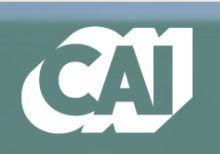Listen to How One Citizens Group in Falmouth, Mass. is Banding Together for Better Broadband
Local citizens and officials have been moving the needle on the Falmouth Community Network, completing a feasibility with the help of CCG Consulting in December and continuing to pursue public awareness and education efforts in the area. ILSR's Christopher Mitchell joined Cape, Coast, and Islands Radio on Tuesday to talk about the effort and the promises it holds for those who live in the area.
Other guests on the show include:
David Isenberg, Distinguished Member of Technical Staff at Bell Labs, Senior Advisor to the FCC's National Broadband Plan, and Board Member of FalmouthNet.
Marilois Snowman, CEO of MediaStruction, a media and marketing firm in the Boston area, V.P. of FalmouthNet, Inc.
Sam Patterson, Falmouth Select Board member and Select Board's Representative to the Falmouth Economic Development and Industrial Corporation (EDIC).



